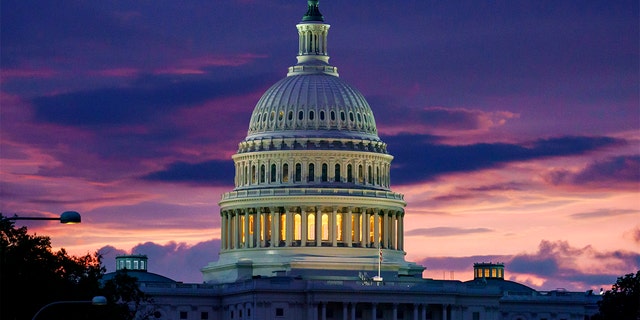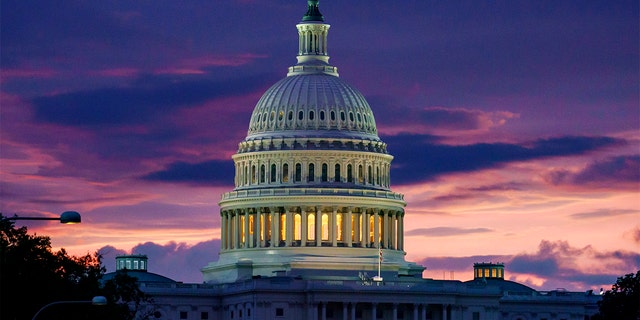
NEWYou can now listen to Fox News articles!
Just 36% of the American public describes the nation’s system of government as basically sound, according to a new national poll from Monmouth University.
That’s a drop from the 55% who said the country’s government system was basically sound in a Monmouth poll from February 2020, and down from 44% in a survey conducted a few weeks after the deadly Jan. 6, 2021 storming of the U.S. Capitol.
Thirty-six percent questioned in the new survey, which was conducted June 23-27, say the system of government is not sound at all, up 14 points from early last year.
The decline in faith in the nation’s governing system has accelerated at different rates among Democrats, Republicans, and independents.
CLICK HERE FOR THE LATEST POLLING FROM FOX NEWS

The Capitol is seen at dawn in Washington, on Election Day, Tuesday, Nov. 2, 2021. (AP Photo/J. Scott Applewhite)
“Among Republicans, the sense that our system of government is sound plummeted from 71% in early 2020 to 41% shortly after President Joe Biden’s inauguration in 2021, and has held fairly steady since then. The decline among independents has been more gradual – from 58% sound in 2020, to 46% in 2021, and 34% in the current poll,” the release from Monmouth noted. “Democrats actually saw a brief increase in faith that the American system is sound from 2020 (34%) to 2021 (45%), but that has now dropped back to 36%.”
FOX NEWS POLL: PRIDE IN U.S. DOWN SIGNIFICANTLY
Monmouth University Polling Institute director Patrick Murray emphasized that “there’s more than just partisanship at work in declining faith in the institutional framework of American democracy. Yes, electoral outcomes play a role. Yes, the current economic crisis plays a role. But attacks on our fundamental democratic processes – and the lack of universal condemnation of those attacks by political leaders from both sides of the aisle – have taken a toll.”
The poll also indicated that the Democratic dominated House select committee investigating the attack on the Capitol — when right wing extremists and other supporters of then-President Donald Trump aimed to derail congressional certification of Biden’s 2020 election victory — has not changed many opinions of what occurred that day. The survey suggests that Republicans are less likely than they were a year ago to describe the violence at the Capitol as either a riot or insurrection.
CLICK HERE FOR THE LATEST FOX NEWS REPORTING ON THE JAN. 6, 2021 ATTACK ON THE U.S. CAPITOL
Overall, nearly two-thirds questioned in the poll, which was conducted prior to sensational testimony from Cassidy Hutchinson, who was an aide to White House Chief of Staff Mark Meadows, said it’s appropriate to call the attack a riot, with half saying it can be described as an insurrection. But those numbers have slipped slightly since early last year.

Supporters of President Donald Trump climb the west wall of the U.S. Capitol on Wednesday, Jan. 6, 2021, in Washington. (AP Photo/Jose Luis Magana)
Four in ten said Trump was directly responsible for the attack, with a quarter saying he encouraged it but wasn’t directly responsible and three in ten saying he did nothing wrong.
Nearly half of Democrats surveyed (45%) said they’ve been following the hearings, but that drops to 16% for independents and just 10% for Republicans.
CLICK HERE TO GET THE FOX NEWS APP
“Some Republicans who were initially appalled have now recast the events of Jan. 6 in a less negative light. It’s not clear the House committee hearings are having any impact in correcting this view, in large part because Republicans simply aren’t watching,” Murray said.
The Monmouth University poll questioned 978 adults nationwide, with an overall sampling error of plus or minus 3.1 percentage points.







